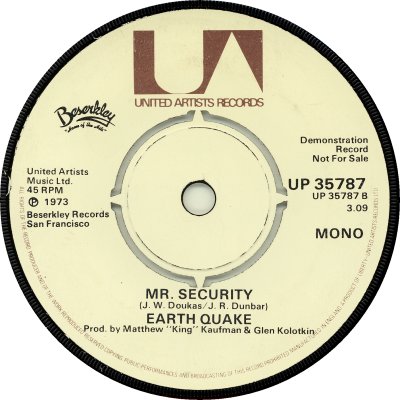
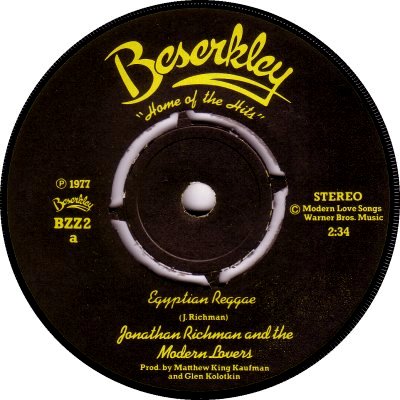
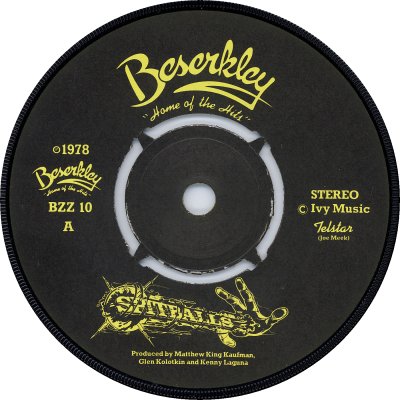
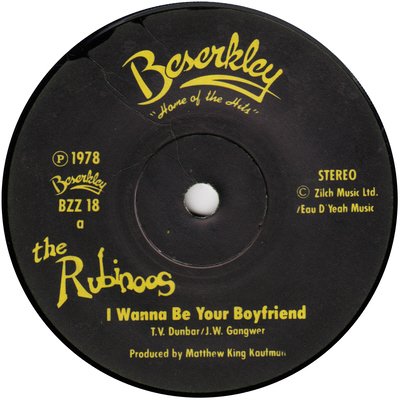
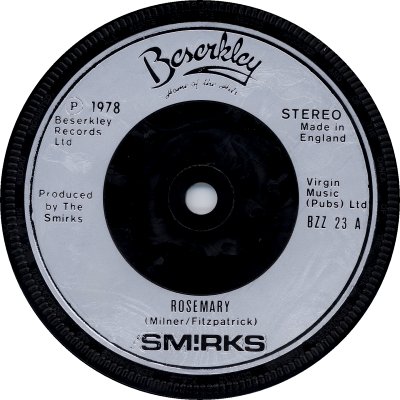
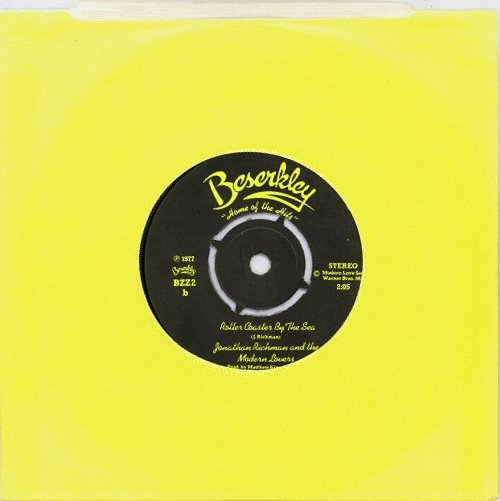
American, though the British arm did issue some product from this side of the Atlantic. Beserkey was founded by Matthew King Kaufman in Berkley, California, in 1975. His stated aim was 'To have fun and make interesting records'. The label's off-the-wall approach was perfectly exemplified in Jonathan Richman & the Modern Lovers, whose 'Egyptian Reggae' was a hit worldwide. Sadly, other hits failed to follow, and money problems led to Beserkley issuing only a handful of records in the early '80s, generally by the Greg Kihn Band. It did however make a comeback in the late '80s, albeit largely recycling its old material. In Britain, Beserkley records were originally licensed to other companies. Earth Quake's version of 'Friday On My Mind' b/w 'Madness' came out on the Cloud One (q.v.) label in November 1974 (HIT-4), and then in the following year the company signed a licensing deal with United Artists. Singles appearing under this deal were Earth Quake's 'Tall Order For A Short Guy' b/w 'Mr. Security' (UP-35787; 2/75) and Jonathan Richman's 'Road Runner' b/w 'It Will Stand' (UP-36006; 8/75). Both had a small Beserkley logo on the standard United Artists label (1).
The first singles on the actual Beserkley label to appear here were imported from the USA; they came in the form of a six-pack, and were made available through a distribution deal with specialist import firm Bizarre ('Music Week', 15th January 1977). A more permanent presence was established in the summer: 'Music Week' of the 2nd of June broke the news that the company had set up here as an independent, under UK managing director Fred Cantrell. It intended to sign some UK acts, 'probably no more than three or four', and had split its operations, turning to Decca / Selecta for pressing and distribution and to Island for promotion. Cantrell is quoted in the article as saying "Island are tops for sales, and Decca manufacturing is second to none. We managed to persuade them that they could work together." Singles were numbered in a BZZ-0 series, and the first of them appeared in July. Richman's 'Egyptian Reggae' b/w 'Roller Coaster By The Sea' (BZZ-2; 9/77) provided an early success, reaching No.5 in the Charts, and the follow-up, 'The Morning Of Our Lives' b/w 'Roadrunner (Thrice)' (BZZ-7; 1/78) tickled the Top 30, suggesting that Beserkley's 'Home of the Hits' logo might not be mistaken, but success proved elusive after that. The 'Gossip' column of 'MW' of the 17th of June 1978 quoted a Beserkley spokesman as saying that there was no truth in rumours that the company was in financial difficulties or that it was looking for an arrangement with a major. According to him, "Like any company marketing records which it is possible to listen to without throwing up, we exist in a permanent state of near bankruptcy."
The 'Gossip' column seems to have had its ear to the ground, for despite the denials 'MW' of the 14th of October revealed that Beserkley had signed a licensing deal with Polydor, 'Buzz Buzz Buzz' by Jonathan Richman (BZZ-24; 11/78) and 'Rosemary' by The Smirks (BZZ-23; 12/78) being the first singles under the new deal. All was not well, however. Fred Cantrell resigned as UK MD in February 1979, as reported in 'MW' of the 3rd February; then 'MW' of the following week, which gave the company's owners as Kaufman and Joel Turtle, said that The Smirks had left the company - their contract had stipulated that they were free to go if Cantrell went, and they had chosen to exercise that option. More worryingly, the article added that both Polydor and Beserkley had scotched suggestions that their licensing deal was to be terminated. Again, it seems that the old adage 'No smoke without fire' applied, for June 1979 saw that last BZZ-prefixed Beserkley single, the company's final UK single of the decade. During the period 1981-83 there were four singles by the Greg Kihn Band on the Beserkley label, the first two through CBS, the second two through WEA; then came the late '80s revival.
One label design served throughout the 1970s, though with the move to Polydor injection moulded labels (5) were adopted. BZZs 22 and 23 can be found as both Decca and Phonodisc pressings, and BZZ-25 seems to have been only pressed by Decca; presumably the Decca copies were manufactured before the move was finalized. In the Decca / Island period specific fonts or logos were used for each artist's name, as shown in the second, third and fourth scans - the fourth comes by courtesy of James Denholm. Those Decca-era singles which didn't have picture covers often came in a plain yellow 'company sleeve' which lacked any kind of label identification (6). There were no special markings for promotional copies. The discography below only covers the 1970s; the gaps in it seem to have been unused numbers.
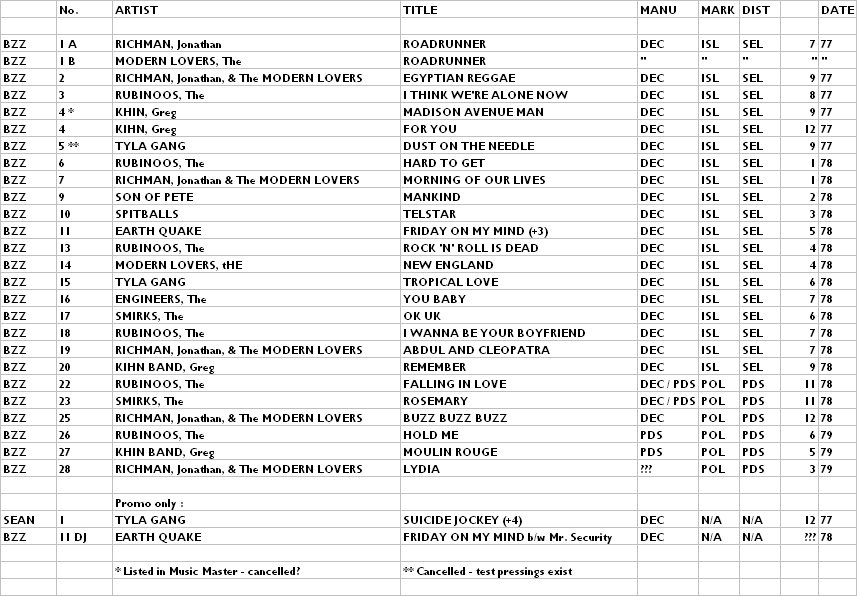


Copyright 2006 Robert Lyons.

